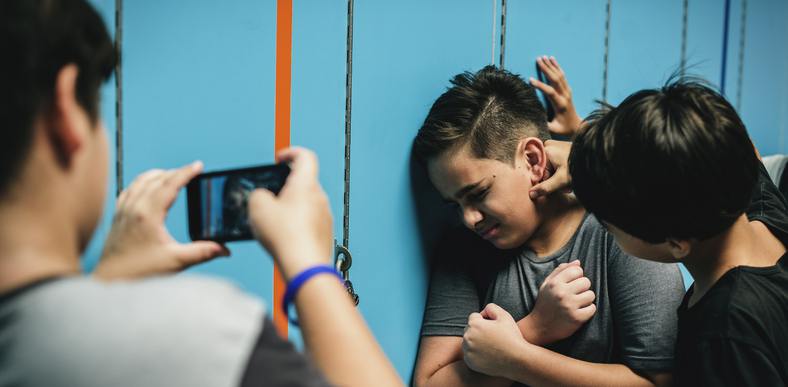
Social media has shined a light on bullying, but it has also given the practice some new venues for perpetrators to target their victims. But research has shown that bullies are also fairly tortured themselves; the Partnership for Drug-Free Kids says students who bully are more prone to smoke, drink, and use illegal substances.
This article explores the link between bullying and substance abuse. What do parents need to know in order to protect their children from bullying that could lead to drug abuse? Where can help be found for those suffering from addiction?
Bullying and Substance Abuse
Bullying is a huge national problem. Pacer’s National Bullying Prevention Center, which has been collecting data on this age-old problem since 2005, publishes statistics on bullying. The statistics show:
- More than one of every five students is bullied every year.
- 33% of these students say they were bullied at least once or twice a month during the school year.
- Students who experience this abuse are more likely to do worse in school and have anxiety and depression.
- Among high school students, 15.5% report being the victims of cyberbullying.
But this hateful behavior spawns self-abuse in the perpetrator of these acts. It seems that kids that bully other kids tend to experiment with drugs and drinking more than average. While bullying occurs more frequently in middle school, drug and alcohol abuse happen more often in high school. How can parents help both the bullied student victim and the substance-using culprit of the bullying?

It's time to get your life back.
If you are struggling with addiction and co-occurring mental health, our expert team is here to guide you every step of the way. Don’t wait— reach out today to take the first step toward taking control of your life.
Anti-Bullying Resources for Students, Teachers, and Parents
If it’s true that bullying and substance abuse go hand-in-hand, what can happen to the perpetrator of these acts as they age? CBS News reports that these kids grow up to have trouble forming social relationships as an adult, have more health problems, and struggle to hold down a job. They cite a study in Psychological Science that correlates the long-term negative ramifications on the bully in adulthood. But previous studies also show that the child being bullied is more likely to have suicidal thoughts. Clearly, the damage bullying goes both ways and can last well into adulthood.

YOU ARE NOT ALONE; SEATTLE HAS RESOURCES TO HELP PARENTS, TEACHERS, AND STUDENTS STOP BULLYING.
For the parents dealing with bullying, there are a good number of resources in the Seattle area. In fact, the State of Washington has passed a number of laws and made funding available for programs to help parents and teachers cope with this issue. Teachers can take classes on bullying prevention, and the State of Washington has a cyberbullying prevention program. Most importantly, parents must work together with classroom professionals to stop bullying before the damage grows too severe.
For the teenager or adult that turns to substance use, drug rehab provides a way to get help to break the cycle of abuse. From medication-assisted therapies to help you get sober to group and individual counseling to help deal with anger and other negative emotions, expert counselors are standing by to provide help.
To learn about our residential treatment facility for substance use, contact us.

